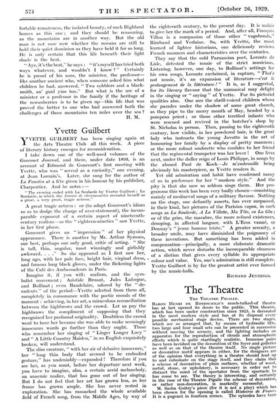Beneath the Rowan F ROM the windows of this grey stone
cottage that was built fifty years ago by a young fisherman, the mountains of Skye are seen on clear days very blue and magical in their cloud-like shapes, ten miles over the water. They seem to be beckoning, not quite assuring the existence of a still more bright and unfamiliar world beyond their fantastic peaks, making half-promises to those who will sail out from this sheltered bay towards them, and adventure over them. They seem to be sentinels, guarding what unguessed loveliness ?—but in another light they are quite different, without allure. If youlook at them in another light, or perhaps it would be truer to say in another frame of mind, then they have become the very symbols of content: utterly calm, utterly secure and securing, indeed a barrier against the watcher's desire ever to move away from here. They are then seen as walls, blue-grey walls built out into the sea to keep back the storm and niake a lasting harbour for dwellers on this loch-side; and it is in that light now that the old fisherman who built this cottage sees them, although, as he has told me, there was a time when they would give him no rest, when they would challenge and reproach him continually: so that he made up his mind to leave his father's cottage, which is now nothing but a ruin further up the hillsid-, and at last shipped away to China and America to see whether there would be any better places than this in which to live. That is the thought he expressed, and that is almost exactly how he expressed it: in a quietly astonishing simple way that must have put many more articulate poets to shame, for their tortured utter- ances that only meant the same thing after all, had they overheard it. He did not find any better place, so he came back when he was still young, married, and settled here beneath the rowan, not to go away even as far as Skye itself again. There, it seems, is A compressed biography that might be written about many a Highland crofter or fisherman of these western lochs and mountains: one ghat has been repeated generation by generation, and perhaps has still to be repeated in this family : perhaps one of the sons of this house will give up what he is doing now and return to carry on the ancient way of living, by fishing, growing a little corn and a few vegetables, keeping a few chickens that scratch out their own existence in the peaty soil by the shore. It may be that this cottage will not have to be sold to strangers—strangers like the two English women who have taken the next cottage up the loch, "decent kind leddies whatever "—but strangers: that the son who is a minister will give up his preaching one day and return—but what if he will not? What if neither he nor the other son, who is a professor of English at a Scottish university, will ever return here? That seems to be what is worrying the old man now. He is proud of his sons, and it looks as though he has good reason to be proud of them: but what if the rowan should have lost its old authority at last? It is as though the rowanberry were a symbol in the old man's eyes. Now, in the beginning of autumn, he cannot keep from looking at the rowan trees. When he goes out to his boat on the shore he looks up at them and seems to nod, and it might well be imagined that the rowanberries, in their brilliant bunches of scarlet and orange, nodded back at him. They do nod and toss in the wind: they glisten and are cheerful, and they bring song-thrushes and missel-thrushes to make autumn merry beside the house. Nothing, indeed, could displace the rowanberries : they do stand for the peculiar corn- fortable remoteness, the isolated beauty, of such Highland homes as this one ; and they should be reassuring, as the mountains are in another way. But the old man is not sure now whether the rowans are still to hold their quiet dominion as they have held it for so long. He is only certain that this life beneath their light shade is the best.
"Aye, it's the best," he says : "it's myself has tried both ways whatever, and wouldn't I know ? " Certainly he is proud of his sons, the minister, the professor— like another ancient who, when someone asked him what children he had, answered, " Twa cobblers and a black- smith, an' guid yins too." But what is the use of a minister or a professor in the family if the heritage of the rowanberries is to be given up—this life that was proved the better to one who had answered both the challenges of those mountains ten miles over the sea ?
H. M.



















































 Previous page
Previous page